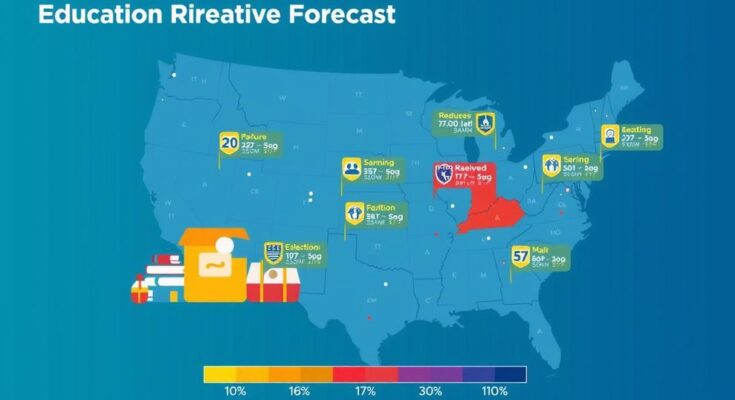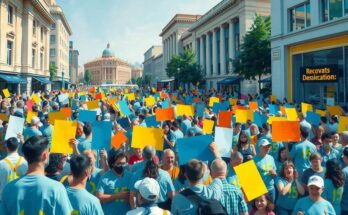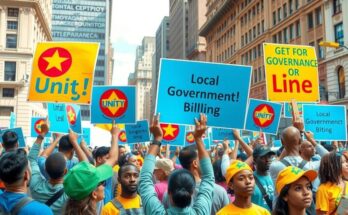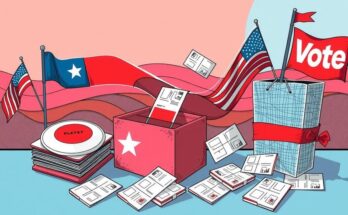The article examines the gap between stated and revealed preferences in education, illustrating how families are increasingly opting for alternatives like charter schools and vocational pathways, driven by economic insecurities. It notes the implications for the 2024 presidential election, suggesting voters may prioritize perceived safety over familiarity, particularly in light of economic challenges and educational discrepancies.
The recent ratification of a groundbreaking union contract by Brass Jar Productions, the company behind Drunk Shakespeare, brings forth a curious juxtaposition between entertainment and education. Drunk Shakespeare, which features a professional actor consuming five shots of whiskey while attempting to perform Shakespeare, has become a cultural phenomenon. Despite the absurdity of the premise, it reflects a broader commentary on societal preferences, particularly in realms such as education and workforce involvement. The gap between stated preference and revealed preference in education is noteworthy. For instance, while a significant percentage of parents express satisfaction with public education and vocal support for teachers’ unions, the reality reveals a different story: millions have chosen alternative pathways like charter schools and Education Savings Accounts (ESAs). In fact, the decline in public school enrollments, particularly in urban districts, highlights this discrepancy. Furthermore, the reality of higher education illustrates a similar trend; despite a majority supporting public funding for community colleges and state universities, enrollment numbers are substantially decreasing. Julie Stone, a leader in economic mobility initiatives, emphasizes the paradox of a system that garners widespread endorsement but suffers from limited adoption. Current economic uncertainties lead families to make choices that prioritize perceived safety for their children’s futures, contributing to a shift in educational trajectories. As families gravitate toward urban universities perceived as more favorable in job recruitment, the preference for vocational pathways over traditional liberal arts education demonstrates a concerted effort to mitigate economic anxieties. Now, as the United States approaches the 2024 presidential election, the electorate’s preferences—both stated and revealed—are poised for scrutiny. Conventional wisdom suggests education level significantly influences voting patterns, yet the ongoing economic turmoil complicates predictability. Many voters may opt for familiar yet risky choices, as seen with former President Trump, rather than the less well-known Vice President Harris. This inclination may not solely stem from policy desires but rather from a deeper instinct to favor perceived safety amidst uncertainty. Ultimately, the reflections on education, workforce preferences, and electoral decisions underscore that the intertwining of economic realities and educational systems significantly impacts societal choices. The forthcoming election not only asks voters to reflect upon their immediate needs but also compels them to consider the broader implications of their decisions on long-term education and economic policies. In this context, voter sobriety—both literally and figuratively—will play a crucial role in shaping the future of American governance and society.
This article discusses the intriguing connection between societal preferences in entertainment and education, notably in the face of economic turbulence. In light of recent developments, such as the union contract for Brass Jar Productions showcasing a bizarre interactive theatre experience, it draws parallels to the broader educational landscape, highlighting discrepancies between what parents claim they value in education and the actions they take regarding their children’s schooling. The piece reflects on the implications of these patterns for the upcoming presidential election, considering how individuals’ economic concerns and perceptions of safety might sway their votes.
In conclusion, the examination of how entertainment, education, and economic anxiety intersect reveals a complex landscape where individuals’ preferences may diverge from their stated beliefs. As upcoming elections approach, understanding this dichotomy will be essential in predicting voter behavior, especially as families navigate their choices in an uncertain economic climate. The need for informed and discerning voters is imperative, as the consequences of electoral decisions will significantly shape future policies affecting education and workforce development.
Original Source: www.forbes.com




